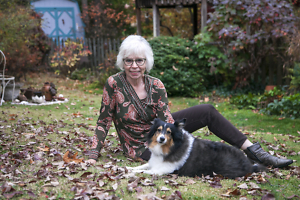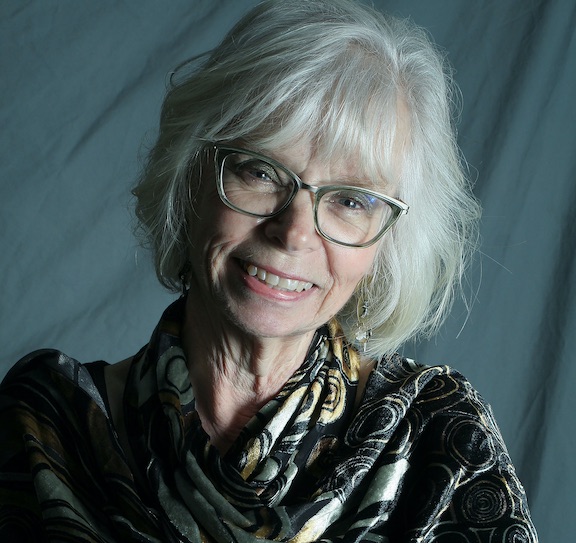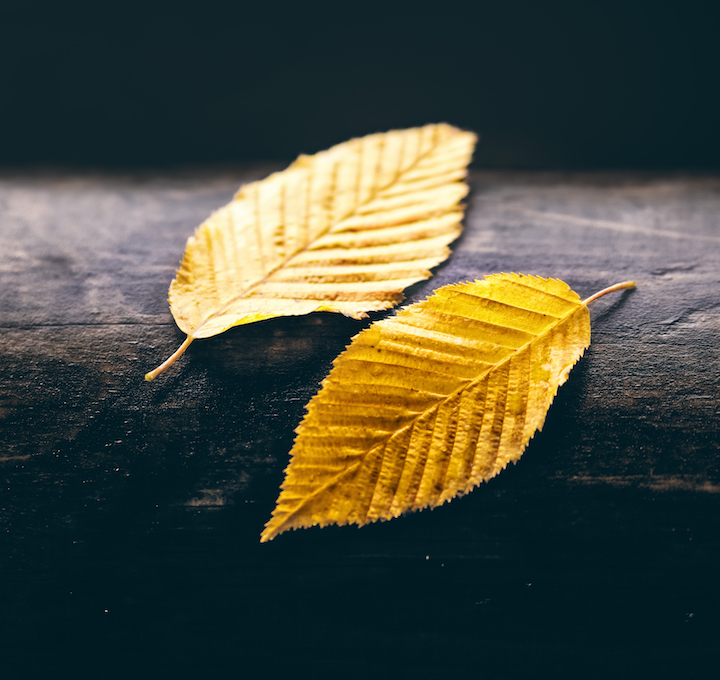Love Bites
The healing chugs on, even as grief sometimes circles back
As a southpaw, I sometimes turn left whether it’s the right direction or not. In workshops and readings, I gravitate to seats on the left, and my left shoe and sleeve go on first. My left hand is strongest. In photographs, the left is my good side. Or it was, until the moment I knew better, like all carelessness. Better than to bend close to my sheltie’s head so soon after boarding him over the weekend. Better than trying to spoon as we often do, taking in the other’s bestial scents.

It happened so fast: his canines in my cheek, white cold then fire then the gorgeous blood. Stupidstupidstupid was all I could think and say as I ran to the mirror and medicine chest for gauze and Neosporin. Stupid because it was all my fault, invading his space after a stressful time, trying to express I’m home now, it’s bedtime, we’re back to routine, see, I love you! In fact, it was my birthday, a big one, my 70th. I had just returned from a whirlwind trip to Asheville for great shopping and meals, gifted by my daughters. I thought, how ironic, these gashes in my lower cheek and chin, hot and throbbing, my face a surprised welt I knew would scar, the left no longer my good side, a fitting present as I enter my “invisible” elder years more fully. Ironic when all the scars I’ve groomed and hidden so well until now erupted and swept their brilliance across this starry, starry night — because I indeed saw stars — close enough to tear open the everyday skin that masks them so completely. Close enough to remind me that, in the end, no matter the sting — emotional, physical — no one’s really at fault when the reason is love.
In poet Maggie Smith’s memoir about her recovery from divorce (can you ever really recover?), You Could Make This Place Beautiful, she writes that a scar tells a story, leaving behind a kind of punctuation mark. The dash on my left knee where Colonel, my friend Susan’s mule, in his usual distemper, sidled into the barbed wire fence to get me off his back. The hyphen on my left ankle where my foot slipped on the bike pedal, the doctor’s lie of the numbing needle being “a little bee sting.” The shiny ellipses on my right thigh where my bike skidded in gravel in my grandmother’s alley and the larger swath on the knee that took the brunt of the fall. When she failed to hear my wailing, I limped to the house where she dabbed boric acid on the wounds, her go-to cure-all. The single parens below my belly, two Caesarian sections, the new bikini cut offered in the 1970s, not that I wore bikinis, but preferrable over the previous procedure of being sliced lengthwise like the Sunday pot roast. That long crescent, where my two children were wrenched from my body (my first being breech), remains sensitive nearly 50 years later. The fragment in the folds of my wrist, a ganglion cyst removal, people saying after the ordeal of surgery I should’ve just hit it with a bible. The marks visible to the world, my armor earned from trials and accidents, mostly faded now, such that only I can recount them all, chapter and verse. Only I see and know these stories; only I care.
Smith also writes that scars are years — the evidence of things not seen, buried deep within, allowing us to somehow blend in, to keep stumbling forward, unmired in loss and grief. The year I left my mother at 11. The year I found her photos with me torn out. The year she was diagnosed, in her early 70s, with bipolar disorder, after a lifetime of injury to herself and others. The year she forgot our long and winding troubles, asking if I loved her a little bit. The year she died of Covid in the nursing home. The year my father stopped eating in the nursing home and tucked into his mother’s oyster dressing on the seventh day beyond this plane, unbound from dementia. The year my stepmother fought like the dickens to stay on our heartbreaking Earth, down to her last grasping refusal. The years without their complicated force — one who couldn’t protect herself and certainly not me, two who took me in. The year I was suddenly alone at 60, husbandless, the realization that he was planning to leave for over a year, steps I never heard or saw coming but see clearly now. The year of empty drawers and closets, of cooking for one, of raging days and fitful nights, finally at peace on the meditation mat, with pen on paper, my steps and breath blessedly my own. No one sees these scars until I speak or write them, as I just did. Even that, years down the road, doesn’t entirely reopen those wounds — but the healing chugs on, even as grief sometimes circles back.
Of course, the dog bite got infected, which meant high-powered antibiotics, a tetanus shot, and worrying how my face would look. I rub almond oil and vitamin E on the scars — two puncture wounds, one gash, puckering like a child’s first sampler. Not that it matters much at this age. I love my white hair and have no choice but to love my face. And not that we all haven’t staunched the flow of nicks and blows and rusty nails, strange gifts from the unwashed world — all of us furred and foolish and bumbling into bruise or wound, able to show off more reminders that in time loss turns to gloss and another line added to my smile only means more smile, more evidence of love’s dire throes.

Copyright © 2024 by Linda Parsons. All rights reserved. Poet, playwright, and editor, Linda Parsons is the poetry editor for Madville Publishing and the copy editor for Chapter 16. Her sixth collection, Valediction, contains poems and prose. Five of her plays have been produced by Flying Anvil Theatre in Knoxville. She is an eighth-generation Tennessean.


